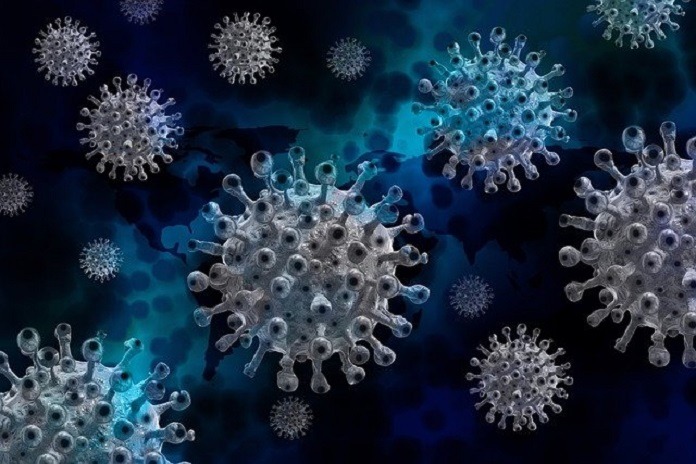New research investigates the prevalence of myocarditis in competitive athletes diagnosed with COVID-19.
Myocarditis is inflammation of the heart muscle.1 It is often difficult to identify because it is associated with a wide variety of clinical symptoms, and since it is commonly seen in younger populations, which are often not considered a high-risk group for cardiovascular conditions and emergencies.1 Getting treatment is important because it can help prevent adverse health outcomes associated with myocarditis, such as decreased function of the ventricles.2
A variety of different things can contribute to the development of myocarditis, including infection, certain drugs, and underlying health conditions. In the United States, however, the most common cause of myocarditis are viral infections.2 Some viruses are more commonly associated with these cases than others, and the immune system’s inflammatory response to the virus is thought to occasionally contribute to the development of myocarditis.
Unfortunately, myocarditis is a frequent cause of mortality in competitive athletes.3 The exact reason for this is unknown; however, some researchers believe that extreme levels of physical exertion may increase the risk of myocardial damage for athletes with established myocarditis.3
Although regular exercise is associated with improved function of the immune system, long periods of high-intensity exercise may be associated with immunosuppression.4 This is suggested by some research; one study found that elite endurance athletes displayed lower numbers of T cells, which are important components of the immune system that help recognize and prevent detrimental actions of pathogenic microbes.5 As a result, some competitive athletes could theoretically be at an increased risk of contracting infections associated with myocarditis.4
Given that COVID-19 is a novel virus, researchers are investigating whether or not it could contribute to the development of myocarditis. There is not enough evidence to establish whether that is a possibility. However, the high prevalence of COVID-19 in the United States warrants more research on this topic.
One study investigated the prevalence of COVID-19 myocarditis in competitive athletes. The results of the study were published in JAMA Cardiology.6
The study group consisted of 1597 competitive athletes from 13 universities in the United States who had COVID-19; they tested positive for SARS-CoV-2 by polymerase chain reaction (PCR) testing methods.6 All participants filled out surveys to test for any potential signs and symptoms of COVID-19 myocarditis. Additionally, the participants underwent a variety of cardiac testing methods to screen for COVID-19 myocarditis. This cardiac testing included a screening method called cardiac magnetic resonance (CMR) screening, which can help with the diagnostic process.
Out of the study group, 37 athletes were diagnosed with myocarditis; nine participants had clinical-stage myocarditis, and 28 participants had subclinical myocarditis.6 This represents 2.3% of the study population. However, if the cardiac testing was based solely on survey results alone without the CMR screening, only about 0.31% of the athletes would be diagnosed with myocarditis.6
The results of this study suggest that CMR screening could be an important strategy to help diagnose this condition that is often asymptomatic; however, more research is needed. Additionally, more research is needed to determine the relationship between COVID-19 and related myocarditis.
References
- Al-Akchar, M., Kiel, J. (2021, May 12). Acute Myocarditis. StatPearls [Internet]. Accessed 2021, June 1, from https://www.ncbi.nlm.nih.gov/books/NBK441847/
- Kang, M., An, J. (2021, May 10). Viral Myocarditis. StatPearls [Internet]. Accessed 2021, June 1, from https://www.ncbi.nlm.nih.gov/books/NBK459259/#:~:text=Myocarditis%20is%20an%20inflammatory%20process,frequently%20the%20cause%20of%20myocarditis.
- Hurwitz, B., Issa, O. (2020, November 4). Management and Treatment of Myocarditis in Athletes. Curr Treat Options Cardiovasc Med 22(12): 65. Doi: 10.1007/s11936-020-00875-1.
- Martin, S.A., Pence, B.D., Woods, J.A. (2009, October). Exercise and Respiratory Tract Viral Infections. Exerc Sport Sci Rev 37(4): 157-164. Doi: 10.1097/JES.0b013e3181b7b57b
- Prieto-Hinojosa, A., Knight, A., Compton, C., et al (2014, July). Reduced thymic output in elite athletes. Brain Behav Immun 39: 75-79. Doi: 10.1016/j.bbi.2014.01.004
- Daniels, C.J., Rajpal, S., Greenshields, J.T., et al (2021, May). Prevalence of clinical and subclinical myocarditis in competitive athletes with recent SARS-CoV-2 infection: Results from the big ten COVID-19 cardiac registry. JAMA Cardiol. Doi: 10.1001/jamacardio.2021.2065.
- Image by Gerd Altmann from Pixabay



